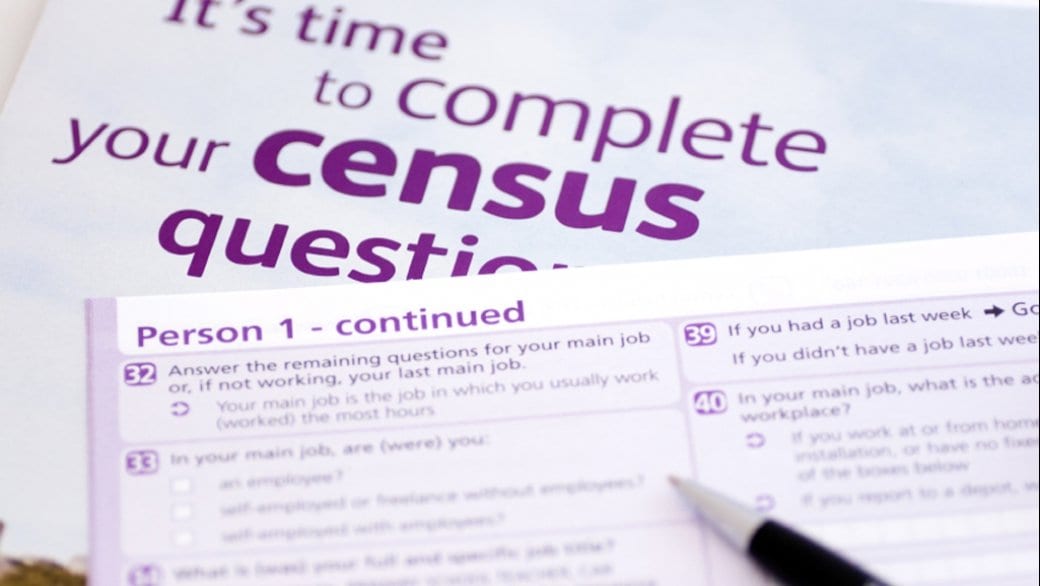As Canadians across the country scramble to complete their census forms in time for tonight’s May 10, 2016 deadline, some trans Canadians are feeling left out.
While the census was altered in 2006 to add options for gay and lesbian couples, it has yet to recognize trans people in the questionnaire.
This year’s census offers only “male” or “female” as answers to the question: “What is your sex?” While this technically includes trans people who identify within the gender binary, it does not give them the option to self-identify and be counted as trans. Nor does it allow non-binary trans or genderqueer people to find themselves accurately reflected in the available answer options. The question also ignores the difference between sex and gender.
Quinn Nelson, a nonbinary trans student of sociology at the University of Calgary, brought this shortfall to MP Navdeep Bains’ attention. Bains is the minister of innovation, science and economic development, the government branch in charge of the census. Connie Graziadei, assistant chief statistician at Statistics Canada, responded to Nelson on Bains’ behalf. She recommends trans and non-binary or genderqueer respondents “leave this question blank and indicate in the comments section at the end of the questionnaire the reasons for which you find the current construction of the question inadequate.”
Marie-Claude Deslandes, media relations officer for Statistics Canada, confirms respondents can skip the “What is your sex” question by clicking “next” and then clicking “next” again when a dialogue box pops up prompting them for response. “They can click the ‘Next’ button once more to bypass question 2,” she says, and then may indicate why they did so in the comments.
That option, however, is not clear on the census. University of Toronto student Iris Robin, who is agender, calls the way respondents must click twice to bypass the question, without a clear prompt that they are able to do so, “confusing.”
Leslea Herber, treasurer for the trans equality society of Alberta, agrees. “Without them having a clear question on the census specifically asking this person’s gender, then giving a list of options including ‘other’ — all they’re getting are the ones that are willing to go out of their way to say so, rather than being put on the spot to admit so.”
That you can skip the question has been spread around by trans activists through the internet, and there is some information on the census’ online Q&A, but that isn’t accessible to everyone. “There’s a high rate of trans people who are experiencing homelessness, so they might not necessarily see the campaigns,” Robin says.
“The groups are doing exactly what they should do, which is make your issues known and raise the objections,” says Dennis Pilon, associate political science professor at York University. But community members shouldn’t stop there, he says.
“You need to make sure that the politicians and various advocates are also influencing the way in which the bureaucracy will respond to these demands,” he says.
Census numbers play a part in making policy, Pilon notes. “Depending on what data we have about the people that live in our country we can then say, ‘Oh wow! We need some extra English as a second language resources,’” he says. “That’s one way of attempting to justify that there should be gender-neutral bathrooms, or any number of educational resources.”
But Haley O’Shaughnessy, a nonbinary history student who lives in Toronto, says the census is only so useful. “If we’re relying on statistics that won’t even acknowledge quite a few of us, then how in the world do we think those statistics are gonna be valuable for organizing?” they ask.
“The solution isn’t necessarily to say we need to be recognized by the census and legitimized by them. We should say, ‘What other knowledge is available that we can use to organize?’”
O’Shaughnessy believes the resources created by the people at the margins should be considered as valuable as state-sanctioned sources of information. “We already know what’s happening on the ground, so why don’t they just listen to us instead of adhering to statistics that might not even reflect the actual urgency of the situation?”
Still, Herber thinks Statistics Canada should start by improving the census. “It would be reasonable to put ‘other,’ to put it mildly. Leave the choice for people to identify how they please; then you’re dealing with honesty,” Herber says. “The more information they get, the more we can be less invisible.”

 Why you can trust Xtra
Why you can trust Xtra


